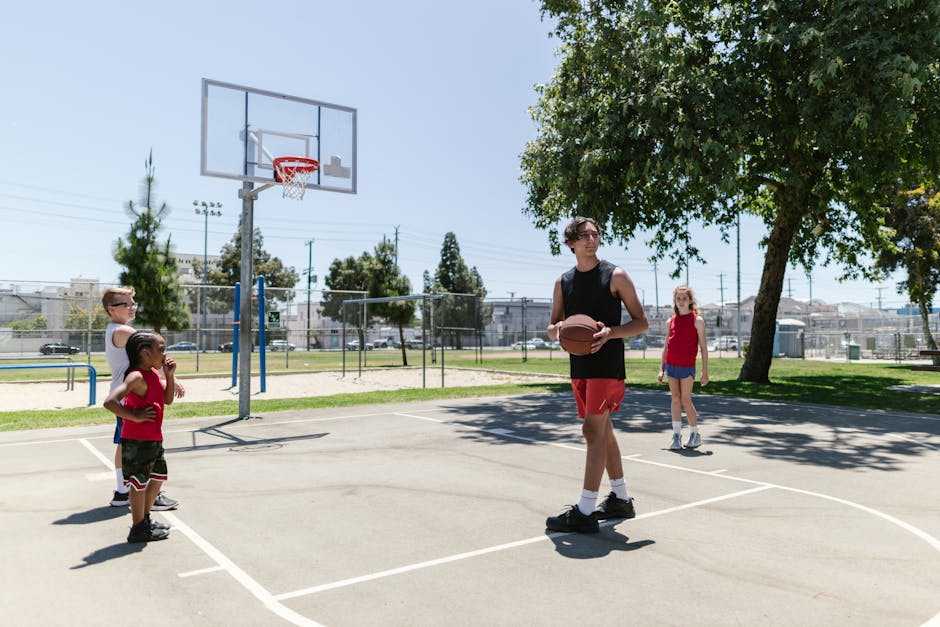Families today face more pressure than ever to support their children’s development—emotionally, academically, and socially. It’s no wonder that more parents are turning to resources like this essential resource to find guidance. At the heart of this conversation is the growing importance of family education nitkaedu, a dynamic model that centers the family’s role in learning and empowers caregivers with practical skills, tools, and strategies.
Defining Family Education and Its Value
Family education isn’t just about helping kids with their homework. It’s a broader approach that equips parents and guardians to actively support their children’s lifelong learning. This includes promoting literacy at home, setting up routines that encourage curiosity, and even understanding the emotional patterns of different age groups.
The family education nitkaedu philosophy goes one step further. It integrates cultural nuance, educational psychology, and practical applications into a comprehensive support system for families. It treats parents not as peripheral helpers but as pivotal educators in their children’s development.
Why Traditional Education Alone Isn’t Enough
Schools play a central role in children’s education, sure—but they can’t do it all. Teachers have limited time and resources. A child who receives support only during school hours is missing out on countless opportunities for growth each day at home.
That’s where family education comes in. When families understand how to create educational environments at home—through conversation, routine, and engagement—kids thrive. They’re more confident, better at problem-solving, and more emotionally resilient.
With family education nitkaedu, the shift is clear: Parenting becomes proactive, not reactive.
Components of the Nitkaedu Approach
So, what makes the Nitkaedu model stand out from other educational support systems? It’s not a one-size-fits-all program. Instead, it’s a flexible framework made up of key pillars:
1. Home-Based Learning Strategies
Rather than focusing only on school-centric methods, Nitkaedu offers practical tips tailored to the home. These include setting up distraction-free zones, designing learning routines, and incorporating educational playtime.
2. Parent/Caregiver Workshops
Ongoing learning isn’t just for kids. Parents benefit from workshops that build awareness about child behavior, learning styles, emotional regulation, and communication skills. These sessions are grounded in real-world challenges parents actually face.
3. Multi-Generational Engagement
Family education shouldn’t stop with the nuclear family. Grandparents, older siblings, and caretakers all influence learning. Nitkaedu designs tools that involve everyone, strengthening the family unit and distributing support roles more evenly.
4. Flexible Digital Tools
The educational landscape has changed. Families need digital resources they can use any time, in any place. Nitkaedu delivers app-based tools, videos, and guides that are simple, relevant, and actionable—especially for time-strapped parents.
Addressing Real Problems with Practical Solutions
Let’s talk about real life. Maybe it’s hard to get your child to focus. Maybe you’re a working parent juggling meetings with meal prep and bedtime routines. Or you’re unsure how to talk to your 12-year-old about anxiety.
One strength of family education nitkaedu is its “meet-you-where-you-are” approach. No jargon. No guilt. Just pathways to practical change, based on research and family-specific needs.
Parents learn how to build supportive environments in manageable ways—maybe that means creating a five-minute conversation ritual each night or replacing consequences with consistent boundaries and positive reinforcement. It’s not revolutionary; it’s just effective.
How Family Education Boosts Mental Wellness
Education and mental wellness go hand in hand. Children raised in stable, responsive environments are less likely to experience disruptive behavior, anxiety, or academic struggles.
Family education helps unpack emotional development. Parents learn when behaviors indicate stress, boredom, or learning gaps—and how to respond without jumping to discipline. That understanding reduces household tension and promotes self-regulation in kids.
Family education also improves parent mental health. With better communication tools and parenting strategies, the stress of “doing it all right” begins to ease. Parents gain confidence and clarity, which in turn benefits everyone in the household.
Encouraging Lifelong Learning Habits
One benefit many overlook? Family education fosters a culture of curiosity and personal growth. When kids see parents reading, asking questions, or experimenting with new skills, learning becomes normalized—not just a school activity.
That mindset sticks. Children who grow up in learning-rich homes tend to become more self-motivated, persistent, and adaptable in the face of challenges. The Nitkaedu methodology reinforces those values day to day.
Making Family Education Accessible
Learning support shouldn’t be a luxury. That’s why platforms like Nitkaedu focus on accessibility. Their tools are affordable, their digital format allows any location access, and their programs don’t require advanced parenting knowledge.
More importantly, Nitkaedu encourages inclusion—across cultures, age groups, and family structures. Education is framed as a shared family goal, not a parental burden.
Final Thoughts
As parenting gets more complex, family education nitkaedu offers a grounded, culturally-conscious, easily accessible way forward. It gives families real solutions, not just theories—tools that actually fit into daily life.
Whether you’re raising a toddler or supporting a high schooler, the core remains the same: Families are not just helpers in education. They’re the foundation. And when they’re supported, empowered, and equipped, everyone wins.



